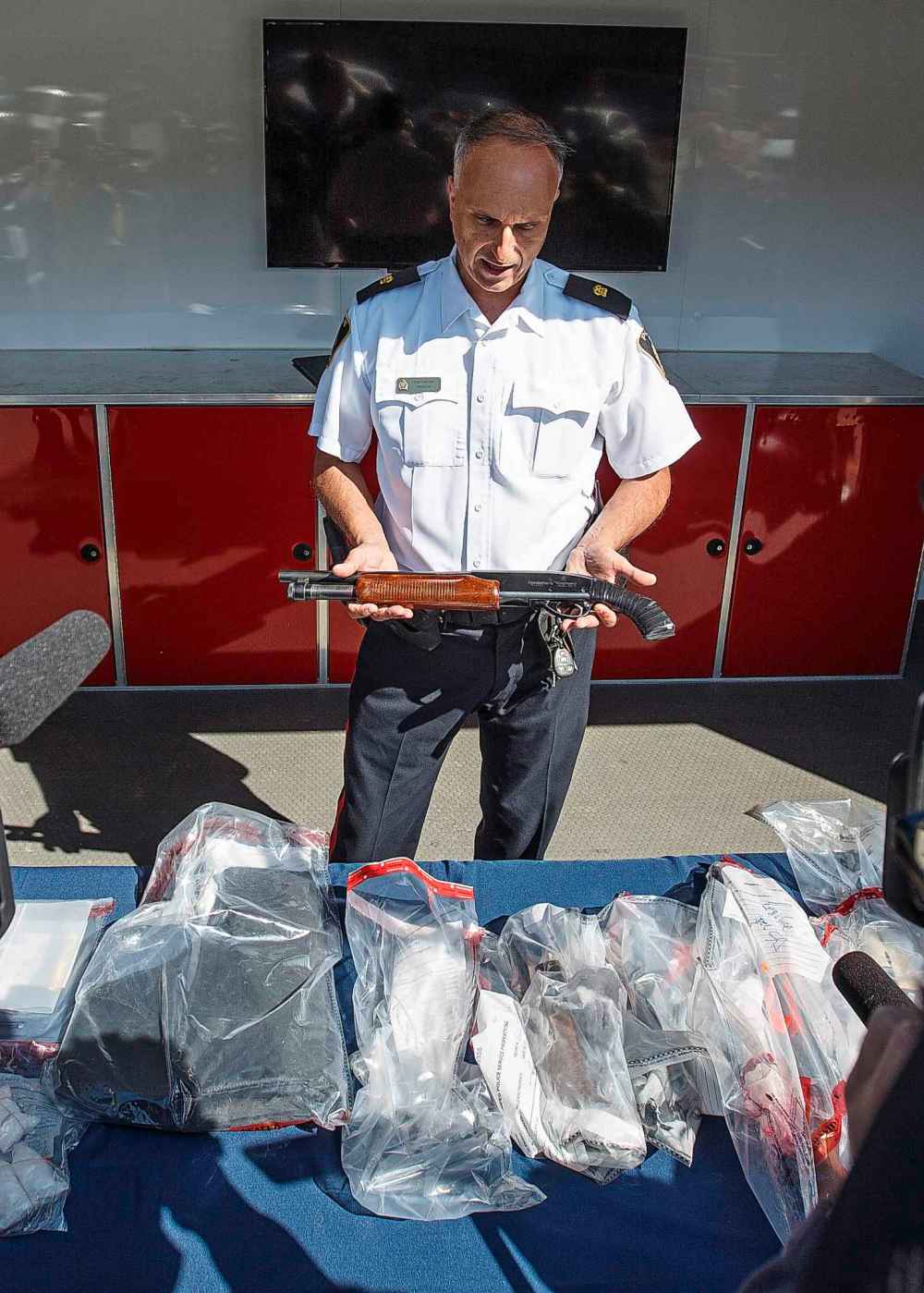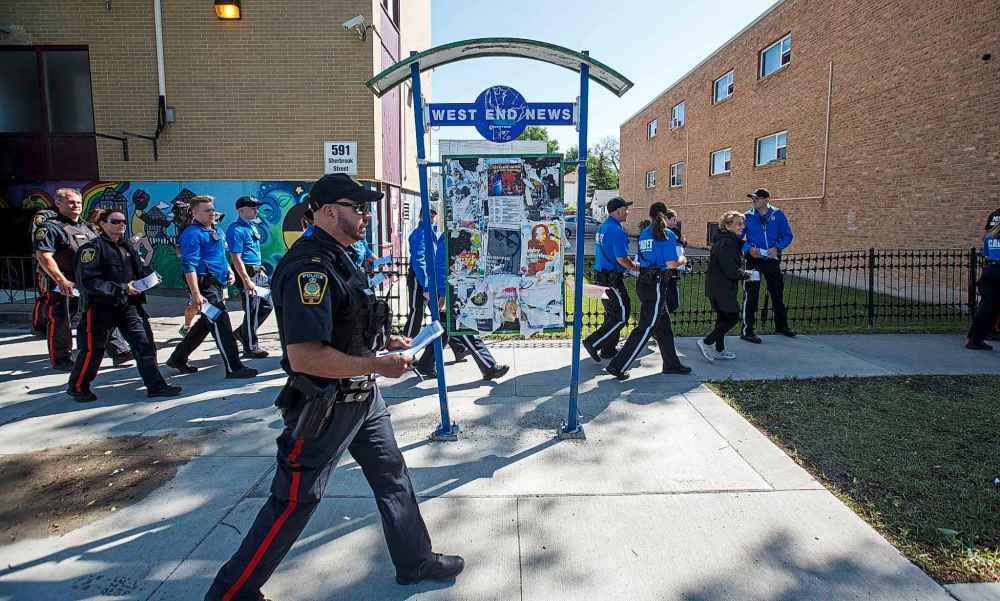Studying lessons learned in meth fight
Read this article for free:
or
Already have an account? Log in here »
To continue reading, please subscribe:
Monthly Digital Subscription
$0 for the first 4 weeks*
- Enjoy unlimited reading on winnipegfreepress.com
- Read the E-Edition, our digital replica newspaper
- Access News Break, our award-winning app
- Play interactive puzzles
*No charge for 4 weeks then price increases to the regular rate of $19.00 plus GST every four weeks. Offer available to new and qualified returning subscribers only. Cancel any time.
Monthly Digital Subscription
$4.75/week*
- Enjoy unlimited reading on winnipegfreepress.com
- Read the E-Edition, our digital replica newspaper
- Access News Break, our award-winning app
- Play interactive puzzles
*Billed as $19 plus GST every four weeks. Cancel any time.
To continue reading, please subscribe:
Add Free Press access to your Brandon Sun subscription for only an additional
$1 for the first 4 weeks*
*Your next subscription payment will increase by $1.00 and you will be charged $16.99 plus GST for four weeks. After four weeks, your payment will increase to $23.99 plus GST every four weeks.
Read unlimited articles for free today:
or
Already have an account? Log in here »
Hey there, time traveller!
This article was published 28/08/2019 (2295 days ago), so information in it may no longer be current.
As Winnipeg police and cadets pounded the pavement Wednesday in the city’s West End — raising awareness of resources available to the public after a series of high-profile drug and gun busts — the deeper work of studying and finding solutions to the meth crisis continued quietly in the background.

In just 35 hours, beginning Saturday, police seized seven guns and a kilogram of methamphetamine, along with other drugs and weapons.
Tips from residents contributed to the busts, said Insp. Max Waddell, but so, too, did intelligence gleaned by the Winnipeg Police Service guns and gangs unit, created in March.
“That’s what our unit’s mandates are: to get as many guns and drugs off the streets as we possibly can,” he said. “Within this 30-hour period, this is what we had information on; we were able to execute a couple of search warrants. And we also came (to) in-progress incidents, where an individual had a firearm sticking out of his bag.”
The WPS unit is building a database and working with the U.S. Bureau of Alcohol, Tobacco, Firearms and Explosives to better trace crime guns, determining if they came from the U.S., “straw purchases” (buying for someone prohibited from possessing one or someone who does not want their name used), or robberies in Canada.
Officers and civilian staff in the investigative analysis section study the forensic evidence on guns to build a body of knowledge. Adding to the database is a never-ending process, but to a point where intelligence gathered and sources developed by the unit are “pretty much always used” in cases such as this week’s, Waddell said.

“No doubt that we did have some information in these incidents that led us to these crimes,” he said.
Meth was not being manufactured in the locations police searched over the weekend.
“The reason for that is, the process is not only complex but it’s very expensive to get going and to get the precursors required,” Wadell said. “It is just simpler to buy from sources out West, it gets trucked into Winnipeg and it gets dispersed from there.”
While a few local meth labs have been busted, police believe most is coming from Western Canada and Mexico — and it’s potent.
“It is highly pure, for sure,” Wadell said. “Through airplane, train, automobile, you name it. They can disguise it, they can hide it, they can liquefy it, they can do whatever.”
Addictions Foundation of Manitoba medical director Dr. Ginette Poulin said officials have grappled to cope with the meth crisis, in part because it seems to be gripping Winnipeg harder than other centres.
“I think the product that we’re dealing with, in terms of the toxicity, and then the outcomes in terms of aggressivity, psychosis, seems to be higher than what other areas have reported,” Poulin said. “It is a bit of a challenge, because we’re also learning.”

Part of what AFM is learning is people recovering from meth addiction or meth psychosis might need to stay in treatment longer. Before, patients would be expected to stay in detox seven to 10 days; now, it’s more like 14, said Poulin.
“We’ve been a little bit more flexible in our times of stay, so lengthening time both in detox and in the residential programs,” she said. “And linking better into housing. Those are things that, on the front line, have happened.
“Obviously, we’re waiting for things like (the Manitoba provincial election) to help guide some of that direction, but on the front lines, we are actively doing some of those things.”
Last year, Klinic and AFM hired a trauma counsellor for the River Point Centre’s Manitoba opioid support and treatment program. “When we look at studies, there’s a lot of trauma in childhood, so many of our clients accessing services have these histories,” she said.
Paramedics are now able to administer olanzepine to tranquilize patients with meth psychosis. The use of the traquilizer is being studied as well, Poulin said.
“Most paramedics are often saying that people are voluntarily accepting to receive that, so that’s very positive,” she said. “Given that they’re often in a state where it might be unpleasant, they might be very aggressive.”
Olanzepine is also now being offered to patients who visit rapid access to addictions medicine clinics, she said.
tvanderhart@freepress.mb.ca
Twitter: @tessavanderhart











